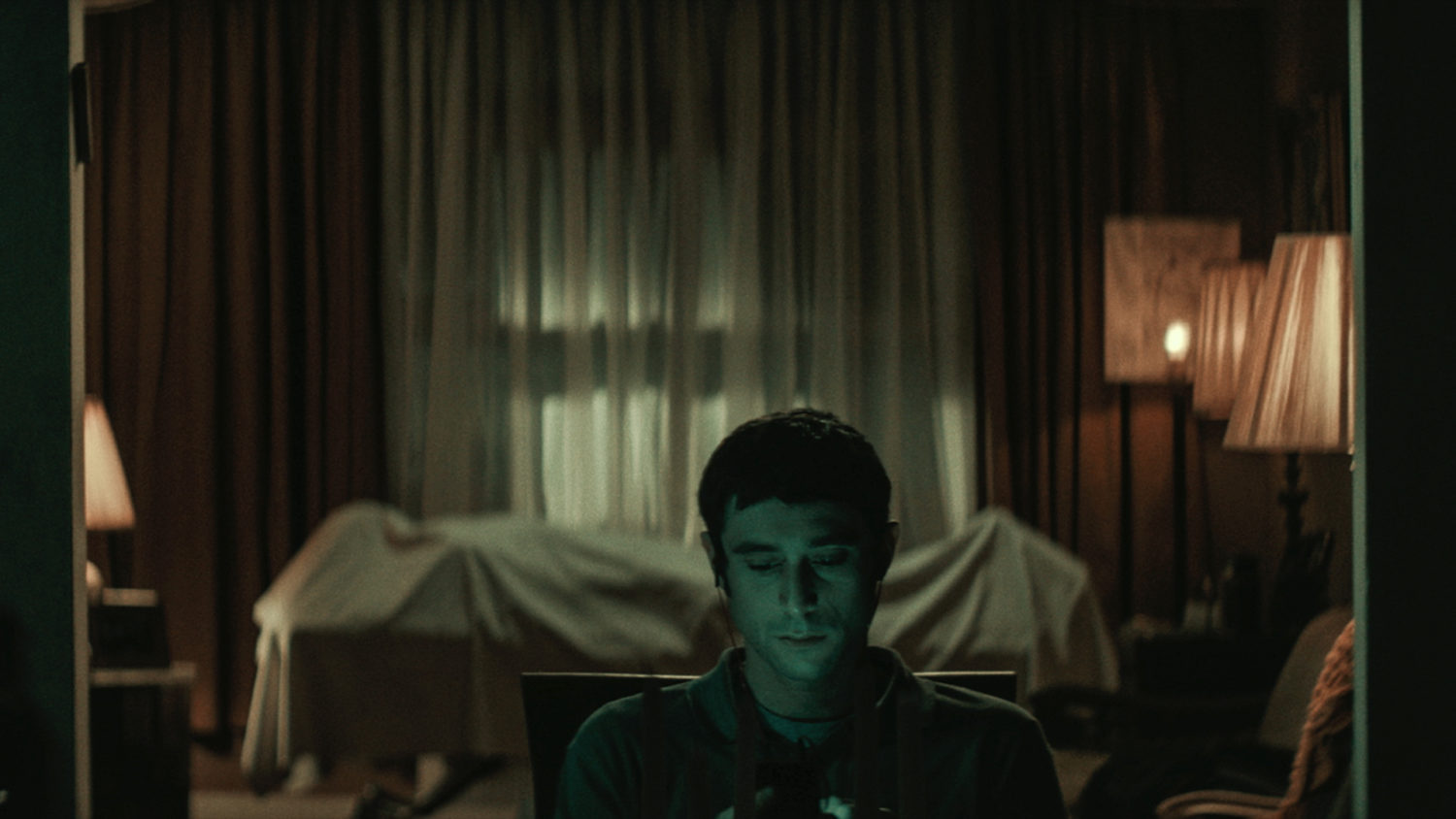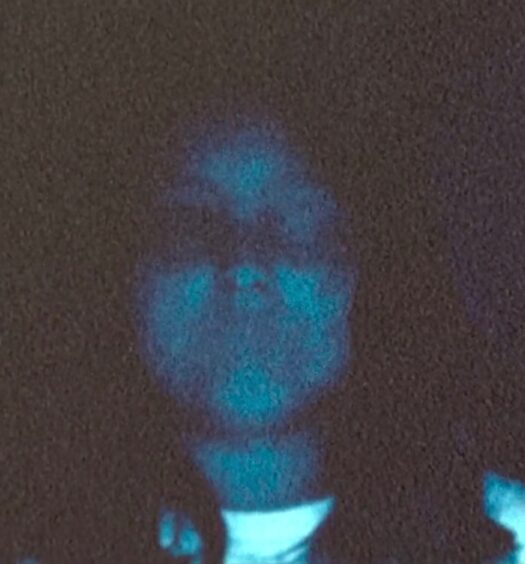Horror has long relied on the deeply religious when it comes to groups to haunt and terrorize. I’ll admit to being grateful that I’m not Catholic, as they seem to really get the brunt of possessions and hauntings in these sort of movies. The Vigil presents a different kind of journey by taking us to Borough Park, Brooklyn, home to one of the largest Orthodox Jewish communities outside of Israel. This is a fascinating section of society that doesn’t get represented from a modern perspective very often, and it’s arguably the film’s greatest strength.
It opens with a small counseling group of people who have recently left the orthodox practice and are hoping to lead a secular life. We are introduced to Yakov who is finding adaptation to be rather difficult. He doesn’t know the rules by which to navigate his new life. He’s having trouble finding a job and even mentions that when asked for his resume, he tried just writing it out on a sheet of paper. This lack of income is what ultimately leads him to agree to act as shomer for a recently deceased member of his former church in order to make some quick cash. The role of shomer, as we are informed by the title cards, is to sit in vigil with the dead overnight, reading psalms, to protect them from lurking evil spirits.
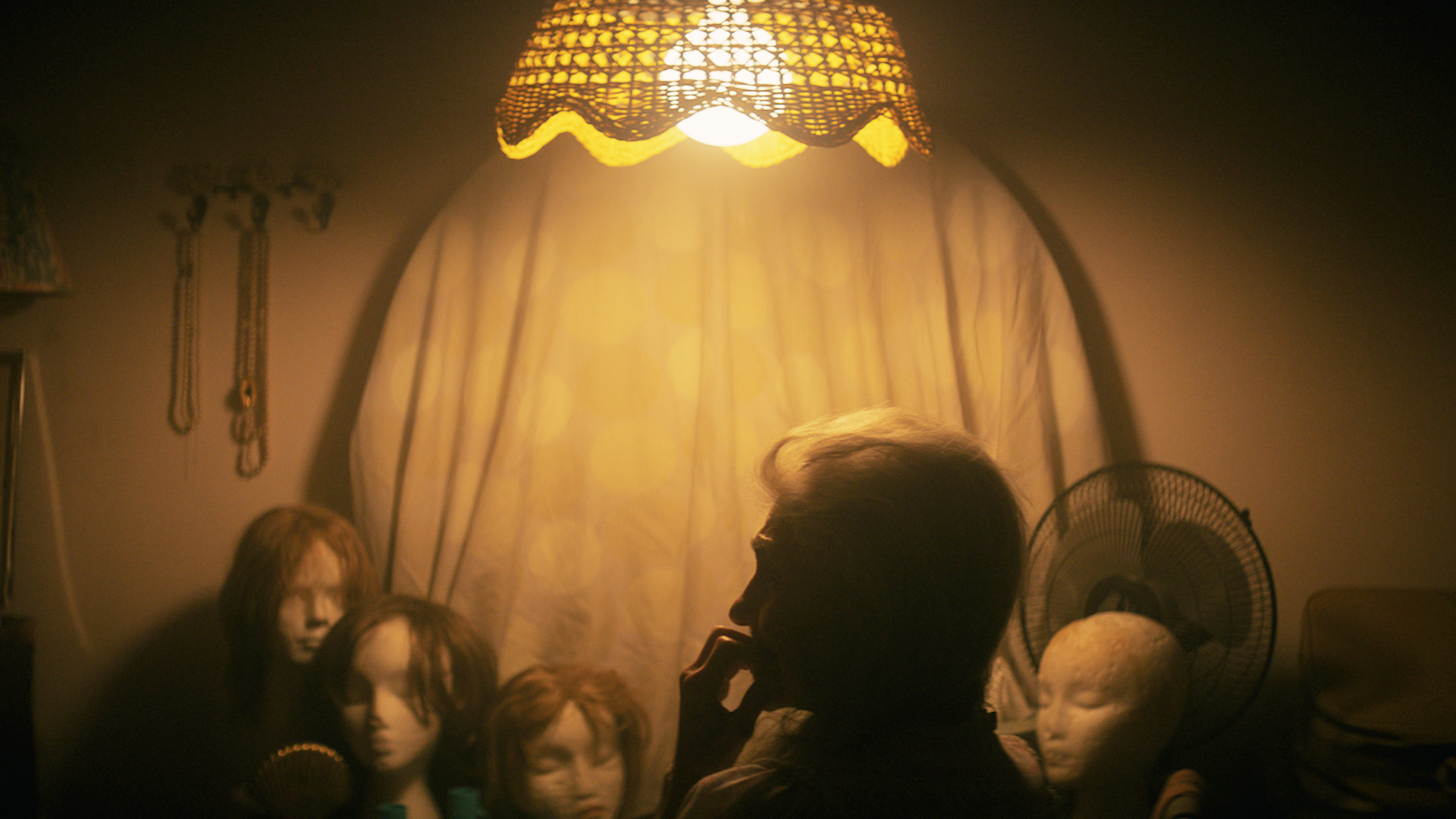
The Vigil manages to avoid that oh-so-familiar moment where audiences question why the protagonist chooses to stay by planting doubt about which perspective we can trust.
In this case, we discover that it’s too late for the recently deceased Mr. Litvak who appears to have been plagued by a demon feeding off his own guilt and trauma for much of his life. Demons, not especially prominent in the Jewish religion, are viewed more as servants of God sent to carry out his punishments. It would seem that Mr. Litvak had a particularly pesky one called Mazzick whose head is on backwards forcing him to only see the past. The grieving widow, portrayed by Lynn Cohen (The Hunger Games: Catching Fire), demands that Yakov leave the minute he arrives, but her distress is dismissed as the rambling of a woman suffering from Alzheimer’s. Ultimately, of course, she was right to be concerned. Perhaps most impressively, The Vigil manages to avoid that oh-so-familiar moment where audiences question why the protagonist chooses to stay by planting doubt about which perspective we can trust.
Despite a career made up mostly of supporting roles, Dave Davis, as Yakov Ronen, expertly carries this story predominantly on his own. Through some carefully curated flashbacks and a couple of phone calls, we get a pretty good picture of the trauma that plagues Yakov and the work he is doing to overcome it. Davis is able to delicately depict a damaged and awkward Yakov whose confidence returns in spurts as he falls back into orthodox practices. Yakov is an unreliable narrator even to himself as the scars of prior traumas have caused him to have instances of seeing and hearing things in the past. The score, by Michael Yezerski, combines with cinematographer Zach Kuperstein’s play of shadows and colors to keep the viewer constantly searching the screen for clues about what is real and what is in Yakov’s imagination. This tension building is incredibly effective and kept me unsettled and prepared for the demon to manifest at any moment.
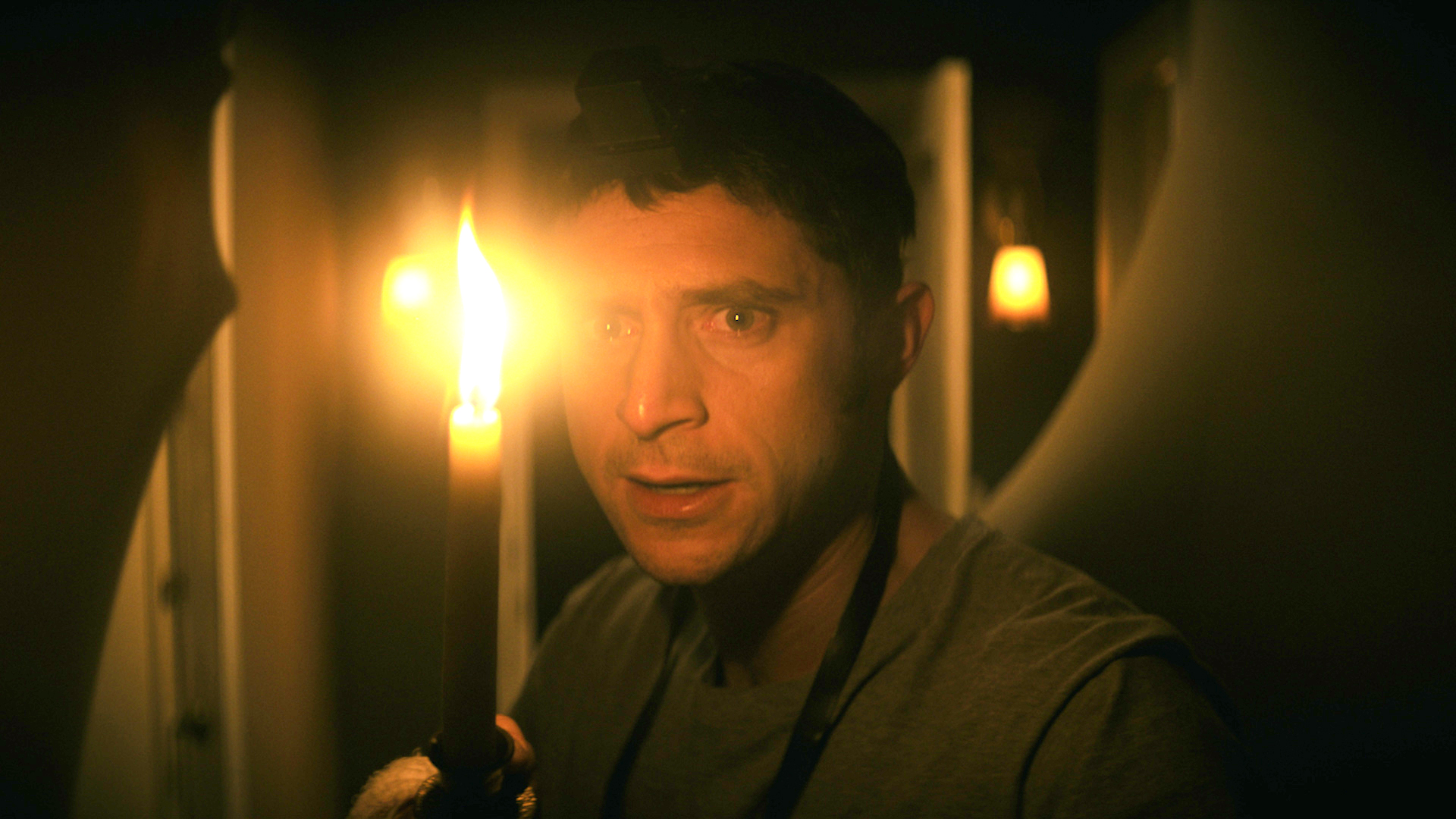
Dave Davis, as Yakov Ronen, expertly carries this story predominantly on his own.
This is the first feature film for writer/director Keith Thomas, and his thorough research of the Borough Park area and study at Rabbi School paid off in this well-crafted story– even if most audiences will need to be brought up to speed on Orhtodox Jewish practices. Thomas makes great use of a tight budget by keeping the film largely in one house, with a limited cast, and over a small span of time. The scares are simple and certainly don’t break any new ground, but they’re effective. Ultimately, some of the imagery fell a little short for me, but the story is compelling enough to forgive a few visuals that don’t quite get the job done.
The Vigil is a tense and thought-provoking look at trauma through the lens of tradition and superstition. The unease built through the film ultimately pays off in terrifying ways before culminating in a satisfying ending. IFC Midnight will release The Vigil in the U.S. on February 26, 2021.
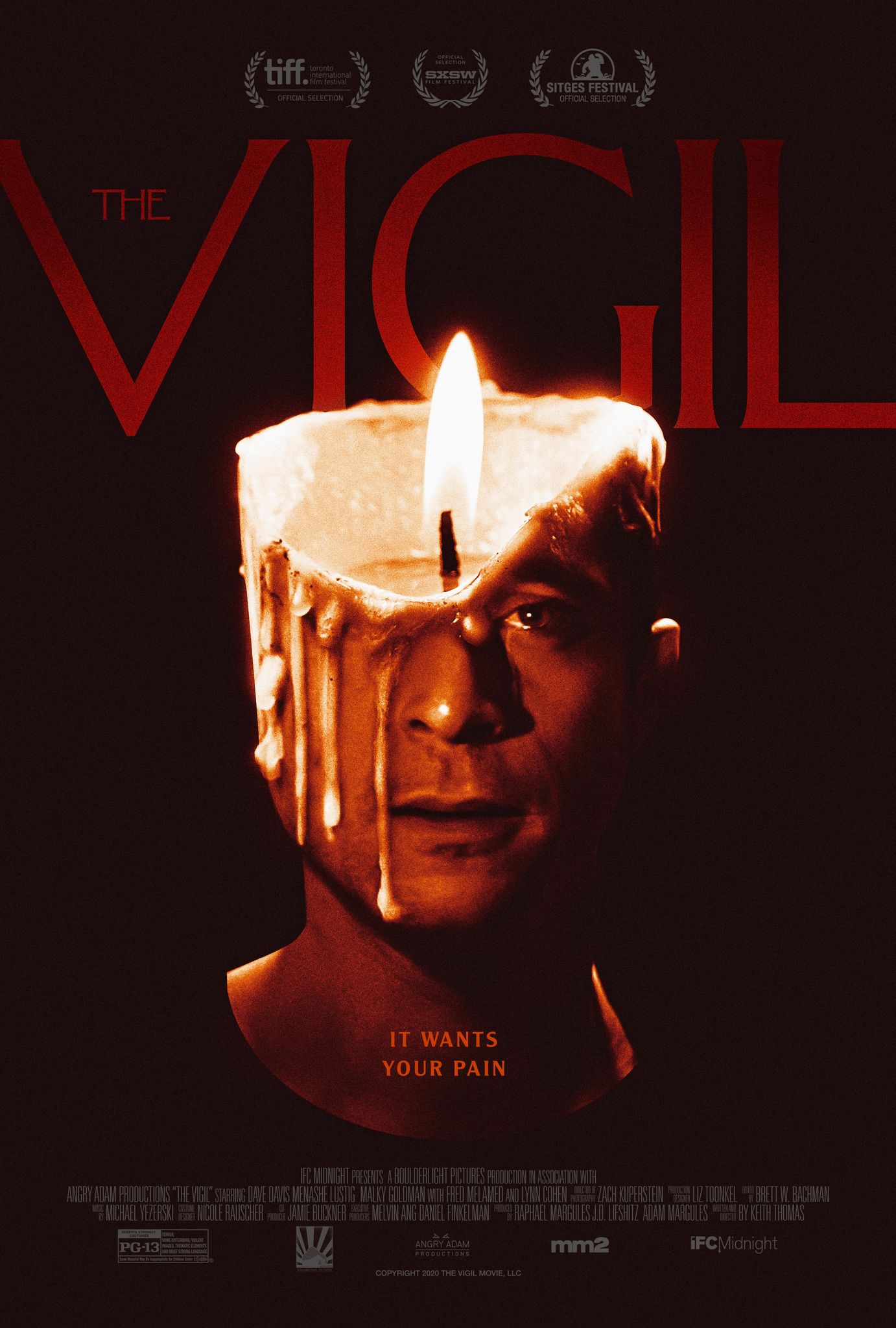
‘The Vigil’ is a tense and thought-provoking look at trauma through tradition and superstition

